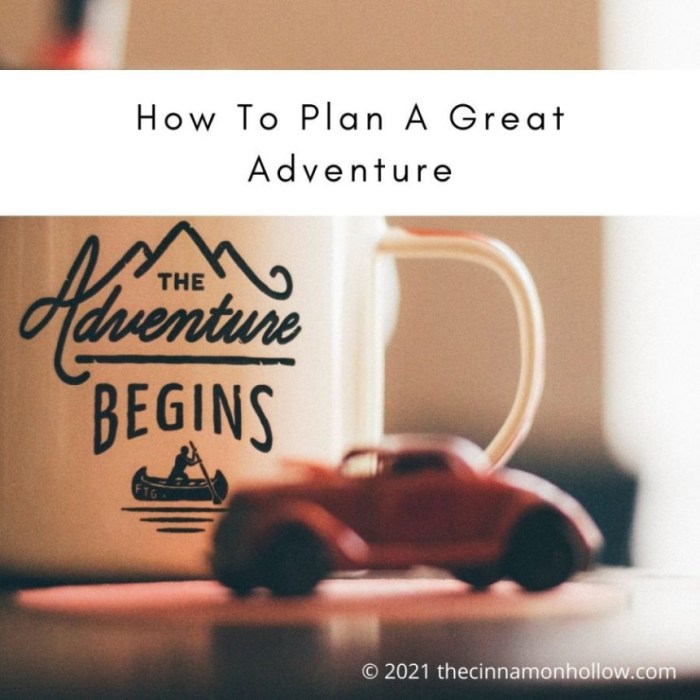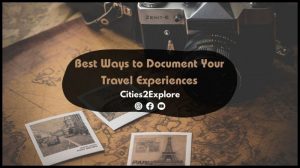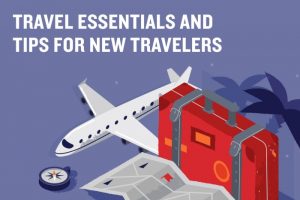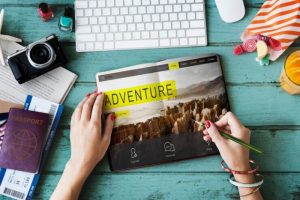
Understanding the Basics of Travel Adventure Planning
Planning a travel adventure can be an exhilarating yet daunting task, especially for beginners. It’s not just about booking flights and hotels; it involves a deeper understanding of what makes an adventure truly memorable. This section aims to equip you with the foundational knowledge necessary to kickstart your journey.Defining a travel adventure for beginners means acknowledging that it encompasses a variety of experiences, from hiking in national parks to cultural immersion in foreign cities.
The key elements of planning such adventures include setting goals, understanding your budget, and being aware of your interests and limitations. Establishing clear travel goals and expectations is crucial as it guides the overall planning process and ensures that the adventure aligns with your personal aspirations.
Researching Destinations

Before embarking on an adventure, thorough research of potential destinations is essential. This not only enhances your knowledge but also prepares you for the experiences that await.To effectively research destinations, consider the following methods:
- Utilize travel blogs and forums to gain insights from other travelers.
- Explore social media platforms for real-time information and inspiration.
- Consult travel guidebooks that focus on adventure travel.
When evaluating the safety and accessibility of locations, leverage resources like government travel advisories and local news outlets. Beginner-friendly adventure spots can often be found in national parks, regional hiking trails, or cultural festivals. Websites like VisitTheUSA or local tourism boards provide excellent insights.
Budgeting for Your Adventure
Establishing a travel budget is a critical step in ensuring a smooth adventure. A well-crafted budget helps you manage your finances and avoid overspending.Here’s a step-by-step guide to help you create a travel budget:
- Calculate your total travel funds by examining your savings and potential income sources.
- Estimate costs for flights, accommodation, food, activities, and transportation.
- Set aside a contingency fund for unexpected expenses.
Common expenses to consider include airfare, lodging, meals, entrance fees, and travel insurance. Various budgeting tools and apps like Mint or Travel Mapper can assist you in tracking your finances effectively.
Creating an Itinerary
An organized itinerary is key to maximizing your adventure experience. It serves as a roadmap, ensuring you make the most of your time while allowing for spontaneous discoveries.When designing your itinerary, consider creating a daily activity template that includes:
- Morning activities
- Afternoon excursions
- Evening plans, such as dining or entertainment
Flexibility in travel plans is equally important; unexpected events can lead to some of the best moments. Different itinerary styles cater to various adventure types, from detailed plans for structured trips to loose Artikels for spontaneous explorations.
Packing Essentials for Beginners
Packing effectively can make or break your travel experience. It’s vital to bring only what you need without overloading your bags.Essential items to pack vary based on the adventure type but generally include:
- Comfortable clothing suitable for the climate.
- Durable footwear for walking or hiking.
- Basic toiletries and personal items.
Using packing lists streamlines the process, ensuring you don’t forget important items. Lightweight packing and choosing multipurpose gear, such as a backpack that doubles as a daypack, can significantly enhance your travel experience.
Safety Considerations
Safety is paramount when embarking on any adventure. Being informed can help mitigate risks and ensure a secure travel experience.Key safety tips for beginner travelers include:
- Stay aware of your surroundings and avoid risky areas.
- Keep your belongings secure and utilize hotel safes when possible.
- Always have a copy of important documents, like your passport and insurance.
Having travel insurance is essential; it should cover medical emergencies, trip cancellations, and lost belongings. Create a checklist of emergency contacts and essential items, such as a first-aid kit and local emergency numbers.
Engaging with Local Cultures
Engaging with local cultures enhances the travel experience, providing deeper insights into the destination.To respectfully interact with local communities, consider the following strategies:
- Learn basic phrases in the local language to foster goodwill.
- Participate in cultural exchanges, such as cooking classes or local tours.
- Respect local customs and traditions, such as dress codes and dining etiquette.
Understanding cultural dos and don’ts helps avoid unintentional offenses, ensuring positive interactions.
Documenting Your Adventure
Capturing the essence of your travels can enrich your experience and provide lasting memories.Tips for documenting your adventure include:
- Journaling your experiences daily to reflect on your journey.
- Engaging in photography to preserve vivid memories of landscapes and encounters.
- Organizing photos post-adventure through albums or digital platforms for easy sharing.
These practices not only help preserve memories but also allow you to share your adventures with others.
Following Up Post-Adventure
Reflecting on your travel experiences is crucial for personal growth and planning future adventures.To follow up post-adventure, consider:
- Journaling your thoughts on what you learned and what you would do differently.
- Sharing your travel experiences through social media or blogs to inspire others.
- Using insights gained to create a travel plan for your next adventure, taking into account your newfound preferences and lessons.
These steps ensure that the knowledge gained from one adventure enhances the next, fostering a lifelong journey of exploration.






